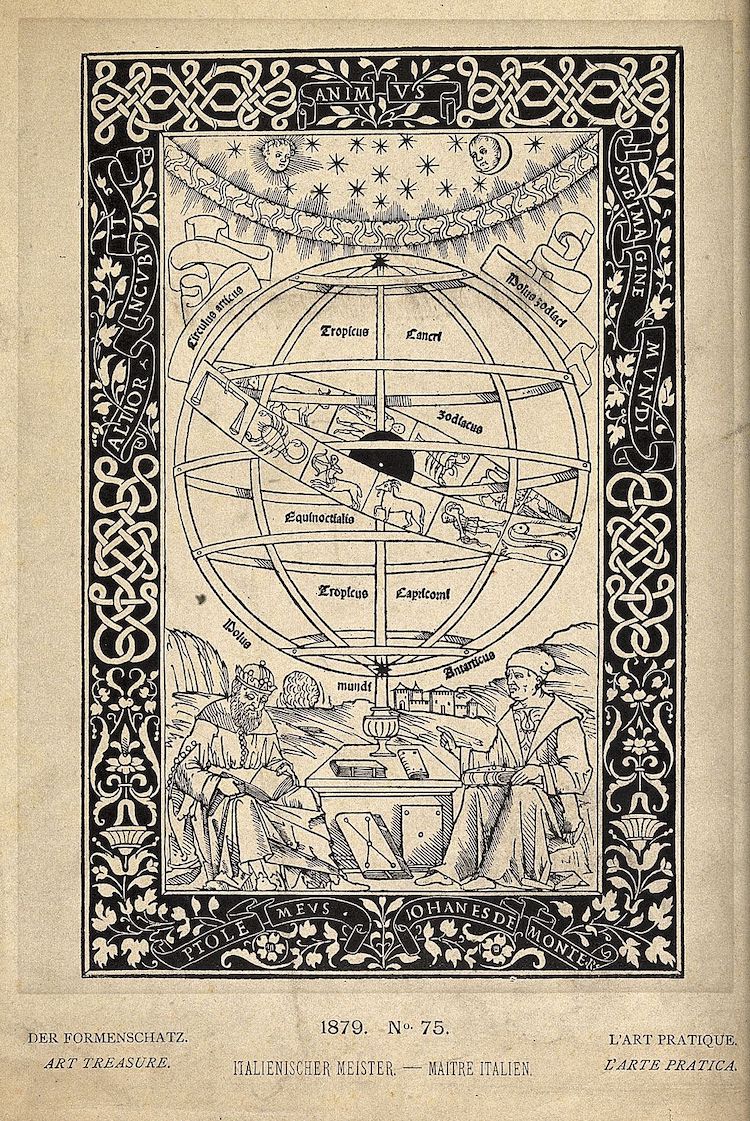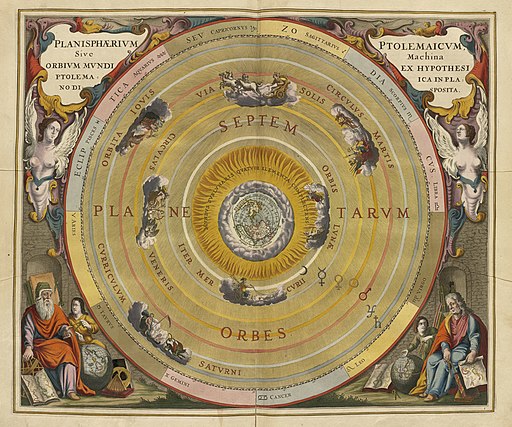
Astrology, the ancient practice of interpreting the influence of celestial bodies on human affairs, has been an integral part of human culture for millennia. Throughout history, astrology has been a subject of fascination, influencing societies and individuals alike. This article delves into the rich history of astrology, exploring its origins, its significance, and its impact on various civilizations.
The Dawn of Astrology
The precise origins of astrology remain a topic of debate among scholars. However, evidence suggests that it began around the third millennium BCE in Mesopotamia, where the Sumerians and Babylonians observed and recorded the movements of celestial bodies. The Babylonians, in particular, are credited with developing the basic framework of astrology as we know it today, dividing the sky into twelve sections corresponding to the twelve zodiac signs and establishing the concept of horoscopes.
Astrology in Ancient Egypt
The practice of astrology soon spread to Egypt, where it became deeply embedded in the culture, religion, and daily life of the people. Ancient Egyptians believed that the positions of the stars and planets were intrinsically linked to the fate of their pharaohs, their divine rulers, and the Nile floods, which played a critical role in the prosperity of their civilization. The flooding of the Nile was essential for the fertility of the land, and thus, the success of their agriculture.
Astrological knowledge was highly valued in ancient Egypt, as it was believed to provide insights into the gods' will and reveal the divine order of the cosmos. As a result, they relied heavily on astrological knowledge to make crucial decisions regarding agriculture, governance, and even the construction of their monumental architecture, such as the pyramids and temples.
Astrologers in ancient Egypt were highly respected and held influential positions within the society. They were responsible for creating calendars based on celestial observations, which allowed them to predict significant events, such as eclipses and the rising of the Nile. These predictions were vital for planning agricultural activities, religious ceremonies, and determining the most auspicious times for various endeavors.


Astrology in Greece and Rome
Astrology reached Greece around the 5th century BCE, where it became intertwined with Greek philosophy and mythology. Renowned philosophers such as Plato and Aristotle contemplated the impact of celestial bodies on earthly affairs. The Greek mathematician and astrologer Claudius Ptolemy played a pivotal role in astrology's development, penning the influential work "Tetrabiblos" in the 2nd century CE. This comprehensive astrological treatise laid the foundation for Western astrology and was widely circulated throughout the Hellenistic world.
The Romans, too, embraced astrology, integrating it into their daily lives and political decision-making processes. Emperors and military leaders often consulted astrologers before making strategic decisions, and astrology became a tool for both legitimizing power and predicting potential threats.
Astrology in India
Astrology arrived in India through the exchange of knowledge and ideas facilitated by trade routes and invasions. The Indian system of astrology, known as Vedic or Jyotish astrology, took shape around 1500 BCE. It was rooted in the sacred Hindu texts, the Vedas, and focused on understanding the celestial bodies' influence on an individual's life and destiny. In India, astrology has long been used for various purposes, from determining auspicious timings for important events to predicting a person's future based on their birth chart.
Astrology in the Islamic World
Between the 8th and 12th centuries CE, the Islamic world became a hub of astrological knowledge. Islamic scholars translated Greek and Roman astrological texts into Arabic, preserving and expanding upon the knowledge from these ancient civilizations. Renowned scholars such as Al-Kindi and Al-Biruni contributed significantly to the field, refining astrological principles and techniques. Astrology held an important place in Islamic society, guiding decisions related to agriculture, political matters, and personal lives.
During this period, the Islamic world also facilitated the transmission of astrological knowledge to Western Europe. Astrological texts translated into Latin were eagerly consumed by European scholars, fueling a resurgence of interest in astrology throughout the continent.
Astrology in the Medieval and Renaissance Europe
Astrology flourished in medieval Europe, with royal courts employing court astrologers to provide guidance on various matters. The Church, despite its reservations about astrology, recognized its potential for understanding natural phenomena and utilized astrological principles for calculating the date of Easter and other religious events.
The Renaissance saw a further blossoming of astrology, as it became intertwined with the burgeoning field of astronomy. Prominent figures such as Johannes Kepler and Tycho Brahe made significant advancements in both disciplines, further solidifying astrology's place in European intellectual life.

The Decline and Resurgence of Astrology
The Scientific Revolution and the Enlightenment in the 17th and 18th centuries led to a decline in astrology's prominence. As modern scientific methods began to supersede traditional beliefs, astrology was increasingly viewed as a pseudoscience.
However, astrology experienced a resurgence in the 20th century, particularly during the New Age movement of the 1960s and 1970s. This revival was fueled by a renewed interest in spirituality, mysticism, and alternative ways of understanding the human experience. The invention of the printing press and the rise of mass media made astrological information more widely accessible, with horoscopes becoming a popular feature in newspapers and magazines.
Astrology Today
Today, astrology continues to captivate the imagination of people all over the world. While it is not considered a legitimate science by the mainstream scientific community, it holds cultural and historical significance as a means of understanding human behavior, relationships, and the broader world.
Astrology has evolved significantly since its inception, adapting to the changing cultural, religious, and scientific landscapes throughout history. Despite its detractors, astrology remains an influential force in popular culture, and its rich history serves as a testament to humanity's enduring fascination with the cosmos and the quest for meaning in the celestial dance of the stars and planets.

The Impact of Technology on Astrology
The advent of the internet and digital technology has revolutionized the way astrology is practiced and consumed. Access to astrological information, tools, and services is now just a click away, and anyone with an internet connection can explore their natal chart, read horoscopes, or consult with professional astrologers.
These technological advancements have also allowed for more sophisticated and accurate calculations, enhancing the precision of astrological interpretations. The ease of sharing information has facilitated the exchange of knowledge and ideas among astrologers and astrology enthusiasts, fostering a global community connected through their shared interest in the celestial art.
Astrology and Pop Culture
Astrology's presence in popular culture has grown significantly in recent years. Social media platforms like Instagram and Twitter are filled with astrological memes, accounts dedicated to zodiac signs, and discussions around celestial events. Astrology has even found its way into dating apps, as users often include their zodiac signs in their profiles or filter potential matches based on astrological compatibility.
The Future of Astrology
As we look ahead, astrology's role in society will continue to evolve. Though it may never regain the same level of legitimacy it once held in ancient times, it is clear that astrology has a lasting appeal that transcends cultural and temporal boundaries. Its adaptability and persistence throughout history serve as evidence that astrology will continue to endure in the face of skepticism and the ever-changing tides of scientific understanding.
With the increasing popularity of alternative spiritual practices, it is likely that astrology will continue to maintain a strong presence in the collective consciousness. As new generations embrace astrology as a tool for self-discovery, introspection, and understanding the world around them, the celestial art will persist as a source of inspiration, solace, and fascination for many.
In Conclusion
Astrology's rich and diverse history highlights the power of human curiosity and our innate desire to find meaning and connection in the universe. From the ancient civilizations of Mesopotamia, Egypt, and Greece to the modern digital age, astrology has been a constant presence in human culture, shaping the way we perceive and interact with the cosmos.
While its validity and relevance will always be debated, astrology's enduring allure is undeniable. As a testament to our fascination with the stars and planets, astrology serves as a captivating reminder of humanity's age-old quest to understand our place in the cosmos and the unseen forces that guide our lives.
